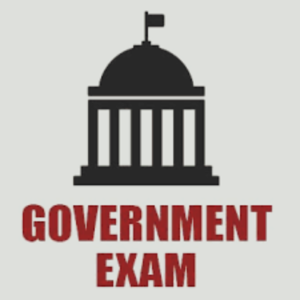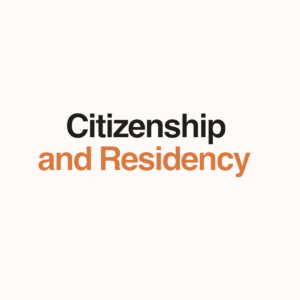"Discover the essential qualifications for government jobs, from education to experience. Get on the path to a rewarding public sector career."
I. Introduction
Government jobs are often highly sought after for their stability, benefits, and the opportunity to serve the public. But what does it take to qualify for one? In this guide, we will explore the various qualifications needed to secure a government job. IIKD (Indian institute of Knowledge and Development ) preparing the students for getting success in Banking Exam, IBPS PO, IBPS-Clerk, SBI PO-Clerk, SSC CGL, SSC CHSL, SSC MTS, RBI Assistant, RBI Grade B, RBI Attendant.
II. Educational Qualifications
To start your journey toward a government job, you must first meet educational requirements. These can range from a high school diploma for entry-level positions to a bachelor’s degree or specialized certifications for more advanced roles.
The SSC MTS, or Staff Selection Commission Multi-Tasking Staff Examination, is a competitive exam conducted by the Staff Selection Commission (SSC) in India. This examination is open to candidates who have completed their 10th standard or equivalent education and are seeking employment in various government departments and ministries at the multi-tasking staff level.
Here’s a brief overview of SSC MTS:
Eligibility: To be eligible for SSC MTS, candidates must have completed their 10th standard or equivalent from a recognized board or institution. There are age criteria for candidates, typically between 18 and 25 years, with age relaxation for certain categories. IIKD provides ssc mts online coaching for those who are interested in pursuing and want to learn from the comfort of their home.
Exam Stages: The SSC MTS examination consists of two papers, Paper-I and Paper-II. Paper-I is an objective type paper with multiple-choice questions, while Paper-II is a descriptive paper. Paper-I tests candidates on general intelligence & reasoning, numerical aptitude, and general English. Paper-II is a short essay or letter writing test.
Selection Process: Candidates who clear Paper-I are eligible to appear for Paper-II. Final selection is based on the cumulative performance in both papers. Candidates are selected based on their performance and merit.
Job Roles: Successful candidates in SSC MTS are appointed in various government departments and ministries in non-gazetted, non-ministerial posts. These roles often involve tasks such as peon, dak attendant, messenger, and more.
SSC MTS is a great opportunity for individuals who have completed their 10th standard to secure government jobs in various departments. It provides job security and decent pay, making it a popular choice for many aspirants.
A 10th pass candidate can secure a job in the government sector. Government jobs are available at various educational levels, and there are many positions that require a 10th-grade education as the minimum qualification. These jobs may include positions like:
- Class IV Jobs: These are often entry-level positions that require basic skills. They can include roles like peons, office attendants, and support staff.
- Police Constable: In some regions, individuals with a 10th-grade education can apply for police constable positions. However, additional requirements such as physical fitness tests and written exams may apply.
- Armed Forces: Some branches of the armed forces, such as the Army, offer positions for soldiers that may require a 10th-grade education. As with police positions, there are additional selection criteria.
- Trade Apprentices: Various government departments and public sector organizations offer trade apprenticeships for individuals with a 10th-grade education. These positions allow candidates to learn specific skills while working.
- Forest Guard: In some regions, forest guard positions may require a 10th-grade education, and candidates may need to pass physical fitness tests and written exams.
It’s important to note that while these positions are available to 10th pass candidates, the competition for government jobs can be high, and having additional qualifications or certifications can improve your chances of success. Additionally, some government jobs may have specific age limits, so it’s essential to check the eligibility criteria for the particular job you are interested in. IIKD prepares students for bank exams and conducts bank exam classes.
- High School Diploma: Many government jobs require a minimum of a high school diploma as a basic qualification.
- Bachelor’s Degree: For more specialized roles, a bachelor’s degree in a relevant field is often essential.
- Specialized Certifications: Certain positions, like nursing or engineering roles, may require specific certifications or licenses.
After completing your 12th standard, there are several government exams in India that you can apply for, depending on your interests and qualifications. Here’s a brief overview of some of the government exams open to candidates who have completed their 12th grade:
- Staff Selection Commission (SSC) Exams:
- SSC Combined Higher Secondary Level (CHSL): This exam is for 12th pass candidates and includes positions like Lower Division Clerk (LDC), Data Entry Operator (DEO), Postal Assistant, and Sorting Assistant.
- Union Public Service Commission (UPSC) Exams:
- National Defense Academy (NDA) Exam: For those interested in a career in the Indian Army, Navy, or Air Force as an officer. This exam can be taken after the 12th and includes a written test, interview, and physical fitness tests.
- Civil Services Examination (CSE): Though the eligibility criteria include a bachelor’s degree, you can start preparing for the CSE after 12th and appear for it once you meet the age and education requirements.
- Indian Army, Navy, and Air Force Exams:
- Various exams like Indian Army Soldier, Indian Navy Sailor, and Indian Air Force Group X & Y exams are open to 12th pass candidates.
- Banking Exams:
- For banking jobs, you can appear for exams like the Institute of Banking Personnel Selection (IBPS) Clerk, IBPS PO, State Bank of India (SBI) Clerk, and SBI Probationary Officer (PO) exams. These exams may require a bachelor’s degree, but there are often age relaxations for 12th pass candidates.
- Railway Exams:
- Exams conducted by the Railway Recruitment Board (RRB) include Group D, Junior Clerk-cum-Typist, and Commercial Apprentice, which may have 12th pass eligibility.
These are just a few examples of the government exams you can apply for after completing your 12th standard. Keep in mind that each exam has its own eligibility criteria, age limits, and selection processes, so it’s important to thoroughly research and prepare for the specific exam you’re interested in.
III. Work Experience
Experience often matters when it comes to government employment. While entry-level positions may not demand prior experience, more senior roles might require a few years in a related field.
- Entry-Level Positions: Some government jobs, like administrative roles, are accessible without prior experience.
- Experienced Positions: For roles in management or specialized areas, experience is a significant advantage.
Prior experience is often crucial in certain government roles due to several key reasons:
- Expertise and Competence: Experience provides individuals with the opportunity to gain hands-on knowledge and develop expertise in a specific field or role. This expertise is invaluable in positions where decisions and actions have a significant impact on public welfare. For instance, experienced healthcare professionals, law enforcement officers, and legal experts are better equipped to handle complex and sensitive issues effectively.
- Effective Decision-Making: Government positions often involve decision-making that can affect public policies, budgets, and regulations. Experienced individuals are more likely to make informed and strategic decisions, as they have encountered various scenarios, learned from their successes and failures, and can apply that knowledge to their decision-making processes.
- Public Trust and Accountability: Some government roles involve a high degree of public trust and accountability. Citizens rely on government officials to make decisions that are in the best interest of the public. Having experienced professionals in these roles helps build and maintain trust, as they are more likely to act in a responsible and transparent manner.
- Crisis Management: During emergencies or crises, government officials need to act swiftly and effectively. Prior experience in crisis management can be the difference between a well-managed response and a chaotic one. Experienced emergency responders, disaster management experts, and public health officials are better equipped to handle crises efficiently.
- Complex Regulations and Policies: Government roles often require an in-depth understanding of complex regulations, policies, and legal frameworks. Experienced individuals are more likely to navigate these intricacies effectively, ensuring compliance and preventing legal or regulatory issues.
While prior experience is highly valuable in many government roles, it’s also important for government organizations to balance the need for experience with opportunities for new talent. Apprenticeships, internships, and entry-level positions provide individuals with the chance to gain experience and build their careers in the public sector. This ensures a mix of fresh ideas and seasoned expertise, contributing to the overall effectiveness of government operations.
IV. Age Limit
Age restrictions are in place for many government jobs, but they vary depending on the position and location.
- Age Limits: Understand the age limits for government jobs, which can range from 18 to 35 or even higher for certain categories.
- Exceptions: Some positions may have exceptions or age waivers. These are typically based on specific criteria or circumstances.
V. Specialized Qualifications
In addition to general qualifications, certain government positions require specialized expertise.
- Medical Qualifications: Doctors, nurses, and other healthcare professionals need to meet specific medical qualifications.
- Legal Requirements: Legal professionals must have the necessary legal qualifications to practice law in their jurisdiction.
- Engineering Credentials: Engineers need to be licensed and meet professional engineering requirements.
VI. Citizenship and Residency
Citizenship and residency status can play a significant role in government job eligibility.
- Citizenship Requirements: Many government positions are open only to citizens of the country.
- Residency Requirements: Some roles may require candidates to be residents of a particular state or region.
VII. Application and Selection Process
Getting a government job involves a formal application and selection process.
Application Process: Learn how to navigate the application process, including creating a compelling resume and cover letter.
- Selection Criteria: Understand the criteria used to select candidates, which may involve interviews, exams, or assessments.
VII. Preparing for Government Exams
Many government jobs require candidates to pass competitive exams. Here’s how to prepare for success.
- Study Resources: Find recommended study materials, guides, and online resources to aid in your exam preparation.
- Time Management: Effective time management is essential. Learn to balance study time with other responsibilities.
- Mock Tests: Take advantage of mock tests and practice exams to assess your knowledge and boost your confidence.
IIKD is a leading educational institute and the best bank exam coaching classes.
IX. Conclusion
 Securing a government job is a significant achievement, but it requires careful preparation and dedication. By understanding the qualifications and following the right steps, you can increase your chances of entering the world of public service.
Securing a government job is a significant achievement, but it requires careful preparation and dedication. By understanding the qualifications and following the right steps, you can increase your chances of entering the world of public service.





